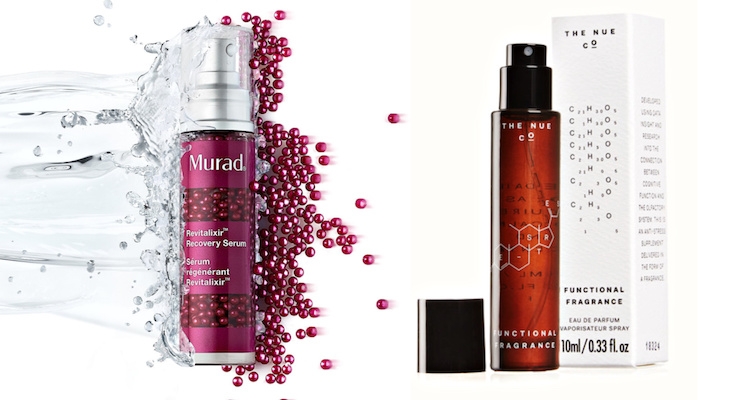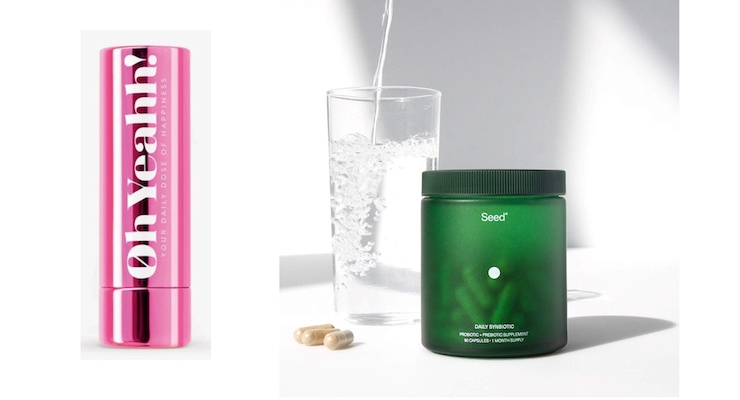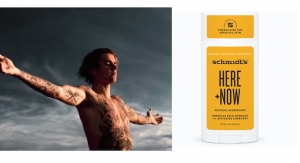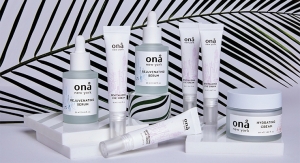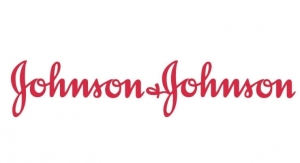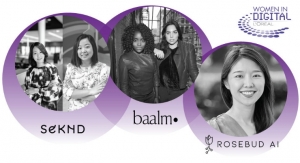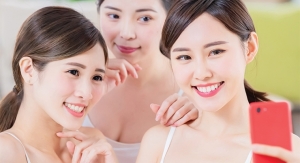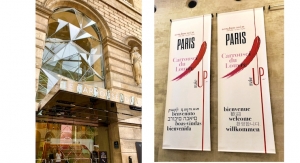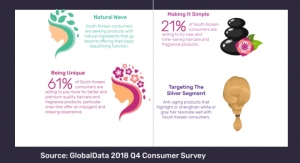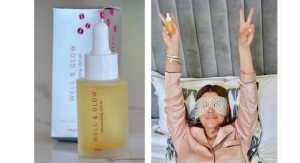Kirsty Cole, head of Growth, Anthem Amsterdam & Brussels12.02.19
Conscious consumerism encapsulates all manner of drivers to purchase, from ethics and sustainability to health and wellness.
The rise of the health and beauty hybrid category has recently been making impactful waves toward self-care, with a special focus on the well-being of the mind—a welcome shift given the globally growing negative impacts of our “always on” and hyperconnected environments and lifestyles.
Cultural definitions of “wealth” and how it’s measured have been upended in recent years with Millennials and the generations that follow -- throwing their weighty purchasing power behind experiences rather than things.
Even the manner in which we research our purchases has changed dramatically. My favorite anecdotal example is when I watched my younger colleagues reviewing restaurant choices for our Christmas party on Instagram -- while my go-to was still star ratings on Google. You can imagine which research method provided the most authentic results.
Aside from the specific purchases we make and the methods we use to select such products or services, it’s the consciousness of the approach behind it all that’s of most interest, particularly so when looking at self-care.
New Self-Care Rituals
Generation Z is of course at the forefront of the negative impacts of societal hyper connectivity and indeed know of no other way of life. In the UK, symptoms of depression are around two-thirds higher for Generation Z as compared to Millennials (University College London, 2019). The Gen Z consumer group also spends an estimated $143 billion each year on consumer goods (Barkley, 2018).
Cortisol, often called the “stress hormone” because of its connection to the body’s stress response, requires management and is essential in protecting overall health and well-being, including the health of our skin and hair as part of preventing premature ageing.
Psychodermatology’s Approach
A burgeoning new field of medical science has developed in the U.S. in recent years – namely, psychodermatology which, as the name suggests, looks at skin treatment in much the same way as psychologists treat emotional and mental conditions.
Psychodermatology’s approach is focused on understanding how the skin responds to emotional and environmental stress and aims to moderate and reduce the skin’s responses. Connections between mind and body are of course not new, but the invested focus on stress as a primary provocation is set to become a key focus over the coming years.
Indeed, we’re beginning to see both consumers and brands re-framing beauty products as elements forming part of a daily routine of self-care rituals, leveraging the shift toward more conscious consumerism in a myriad of ways.
Murad Connects Mind, Body, & Skin
Supporting the self-care movement and specifically in response to the visibly damaging effects of stress, wellness brand Murad focuses on the connections between the body, mind and skin.
Murad's Revitalixir Recovery Serum, shown above, is formulated to smooth stress lines, reduce both under-eye puffiness and dark circles, and renew the vibrancy of the skin.
“While there are many products for genetic aging (getting older) and environmental aging (sun exposure), the visible damaging effects of psychological aging (stress/lifestyle) have largely been ignored. Until now,” states Howard Murad, M.D, Murad.
While still communicating a high-performance product and paying homage to the brand’s clinical heritage, the packaging design uses energetic and vibrant colors to give a more modern and inclusive feel.
Givaudan's New Active, Sensityl
Earlier this year Givaudan unveiled its active cosmetic ingredient Sensityl, which was met with great praise from the industry given its ability to tackle sensitive skin concerns while also positively influencing the user’s mood due to its soothing qualities.
Reportedly, Sensityl works as an anti-inflammatory, fighting the effects of too much cortisol, and also as a relaxant, helping to reduce the negative impacts of stress on body and mind.
The duality of beauty and wellness benefits speaks to the new age approach of self-care and also to more conscious consumerism given its ingredients originating from sustainably sourced microalgae:
“We are very proud of this unique cosmetic breakthrough originating from our research on marine biotechnology, one of the most innovative sustainability pillars of Active Beauty. It reflects our deep willingness to offer our customers not only new, but also natural and sustainable products that meet consumers’ needs,” states Maurizio Volpi, Fragrance Division President – Givaudan.
Functional Fragrances by The Nue Co.
The Nue Co. offers a range of functional fragrances and supplements to leverage connections between our cognitive functions and olfactory systems. The products deliver a multitude of anti-stress remedies. The brand offers tailored plans to meet concerns over stress, energy levels, gut health and beyond.
Sleep supplement products reportedly aid sleep and reduce anxiety while helping to calm and repair the central nervous system. The brand’s purpose is to address problems at their source, stating: “Valerian root is proven to have a sedative effect, while studies show that passionflower significantly impacts the quality of sleep, helping your body rest throughout the night without waking. Sleeping through the night helps lower cortisol levels and has been linked to a decreased risk of developing obesity, diabetes + heart disease.”
The brand’s packaging design leverages a matrix style of communication to further enhance the science of logic behind the functional properties of the products -- communicating the message of "building blocks to health and wellness."
Mood-Booster: Oh Yeahh! Lip Balm
Italian lip balm brand Oh Yeahh! is fully committed to providing happiness. All products contain a Happiness Boosting Complex which helps increase levels of serotonin – the good mood hormone. The ingredient combination of the Griffonia Simplicifolia plant, Kiwi extract and Cacao are said to increases serotonin levels by up to 2.8 times.
The lively colours used on pack combined with the confident and affirmation inducing product copy descriptors ladder up in support of the brand’s singularly compelling and heraldic proposition.
Gleeful Guts: Seed's Daily Symbiotic
Poor gut health, due to an array of factors including stress, can have very negative impacts on both the skin and one’s mood.
Dr. Chatterjee, author of “The Stress Solution,” proports that “stress is probably one of the biggest contributors to poor gut health”. This insight is backed up by a recent Mintel report which found that “86% of all British adults have suffered some form of gastrointestinal (GI) problem or ailment in the last year… with some 30% of adults who have experienced GI issues in the last 12 months attributing them to stress.” (Mintel, 2016)
With the prebiotics ingredient market set to reach $7.6bn by 2025 (Transparency Market Research, 2018), beauty and wellness brands are beginning to cash in on the links between gleeful guts and sprightly skin.
Start-up brand Seed perfectly taps into the growing movement of conscious consumerism and self-care with a rather poetic call to action -- “There’s a citizen scientist in all of us. Question, observe, learn. Shift perspective, look closer. Inquire Within.”
The brand offers a selection of daily symbiotic (probiotics + prebiotics) capsules for digestive, heart, cellular and skin health.
The products are packaged in slightly transparent green glass as a fitting nudge toward the brand’s use of natural and high-quality clarity ingredients, presenting consumers with the promise of blue skies ahead.
6 Ways To Engage with Consumers in New Ways
Though the link between the health of one’s diet and the health of one’s skin is now undeniable, it appears that skin health is also far more nuanced than skin deep.
The boundaries of a holistic approach to skincare are continuing to blur moving towards self-care and conscious consumerism - thus creating a host of new opportunities for brands to provide further value and engage with their consumers in new ways.
Find a Balance: For the self-care generation an integrated approach is key. Concentrate on providing solutions for both inner and outer harmony.
Investigate Targeted Stress-Busting Solutions: Stress is now a global plague. Consumers are looking beyond pharma for more natural and holistic remedies.
Focus on Effectiveness: The efficacy of your product needs to be thoroughly tested in order to both capture and retain consumers. Take a considered approach to ensure return on your investment.
Be Honest: For Gen Z consumers and beauty it’s all about ‘being yourself.’ This needs to be authentically captured in your brand positioning, product propositions and communication in order to establish credibility and trust.
Support Underlying Issues: Authentic marketing should include and be mindful of broader positive messaging -- drawing attention to the host of health and wellness triggers, plus tips for addressing them.
Play a Meaningful Role: ensure your brands purpose, values and experience are considerate of social and environmental issues. Be part of positive change at a higher level.

